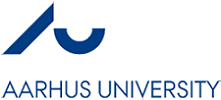English

English is the language of globalisation. It is the mother tongue of around 350 million people, and an even larger number speak English as a second language. It is the language that enables you to communicate across borders, whether about culture or commerce. For many years, English-speaking countries such as the UK and the USA have largely been responsible for setting the global agenda, but new English-speaking countries like India are becoming increasingly influential.
Today, the private job market, public institutions and PhD degree programmes require English language skills and knowledge of the English-speaking world. You acquire these competences in the Master’s degree in English. In this degree programme, you use English at a high international level and gain in-depth knowledge of the history, culture and social conditions of the English-speaking world.
Your verbal and written language skills will improve and your knowledge of the culture and social conditions of English-speaking countries increase. You learn how to master the language in both business and every-day situations, and your cultural and language expertise will enable you to facilitate communication both clturally and linguistically between Denmark and English-speaking countries. In addition, you become able to convey information and ideas clearly and vividly both verbally and in writing, and to plan and carry out large complex projects.
Download a short presentation of the MA in English programme 2014.
A Master’s degree in English counts as two years of full-time study (120 ECTS credits) and is divided into three tracks:
- In Track A, you study English for two years (120 ECTS credits).
- Track B consists of 1¼ years (75 ECTS credits) of English studies combined with ¾ year (45 ECTS credits) of studies in another subject taught at upper secondary school.
- Like Track A, Track C consists of two years (120 ECTS credits) of English studies. The first 45 ECTS credits are identical to the supplementary subject in English at Master’s degree level.
Na studia magisterskie mogą kandydować wszyscy, którzy ukończyli studia licencjackie lub inżynierskie (studia I stopnia), studia magisterskie lub studiują na ostatnim roku studiów I-stopnia. Studia, które planujesz powinny mieć zbliżony profil do tych obecnych lub ukończonych, ponieważ w procesie rekrutacji kluczowa jest ich zgodność programowa.
Wykaz punktów ECTS – osoby, które są jeszcze w trakcie studiów, muszą załączyć wypis punktów ECTS, w którym będzie wykazane, jakie przedmioty były realizowane na studiach oraz ile punktów za nie otrzymano.
Dyplom ukończenia studiów licencjackich lub inżynierskich – jeśli jesteś absolwentem wyższej uczelni, nie potrzebujesz wypisu, wystarczy załączyć dyplom ukończenia studiów wraz z suplementem (w języku angielskim lub oryginał z tłumaczeniem)
Course description - należy przygotować dokument, zbierający cały sylabus ze studiów licencjackich. Takie sylabusy najczęściej są do pobrania na stronie uniwersytetu. Należy je przetłumaczyć na język angielski (można samodzielnie) i złączyć w jeden dokument. Warto też zapytać w dziekanacie uczelni, czy nie dysponują wersją angielską.
Oficjalna skala oceniania Twojej uczelni - możesz dostać taki dokument w dziekanacie Twojej uczelni lub skonstruować samodzielnie. W obu przypadkach dokument powinien zawierać pieczątkę dziekanatu.
Spełnienie wymagań w zakresie języka angielskiego można udokumentować w jeden z następujących sposobów:
IELTS – 6.5
TOEFL – 83 (Aarhus University TOEFL kod - 8935)
Uwaga: wymagania językowe mogą ulec zmianie. Przed wysłaniem aplikacji upewnij się jakie są wymagania językowe na konkretny kierunek bezpośrednio na stronie uczelni.
W przypadku zdawania certyfikatu IELTs upewnij się, czy uczelnia oprócz wymagań oceny końcowej nie ma również wymagań odnośnie ocen cząstkowych.
The requirements for admission to the Master’s degree programme in English vary according to the track you wish to enrol in.
Track A (120 ECTS credits in English)
The admission requirements for Track A of the Master’s degree programme are a completed Bachelor’s degree (135 ECTS credits) in English and a supplementary subject (45 ECTS credits) at Bachelor’s degree level, or a completed Bachelor’s degree (135 ECTS credits) in another subject and a supplementary subject (45 ECTS credits) in International Communication in English at Bachelor’s degree level.
Track B (75 ECTS credits in English with a supplementary subject at Master’s degree level of 45 ECTS credits)
The admission requirements for Track B of the Master’s degree programme are a completed Bachelor’s degree (135 ECTS credits) in English and a supplementary subject (45 ECTS credits) at Bachelor’s degree level in another subject taught at upper secondary school.
Track C (120 ECTS credits in English aimed at upper secondary school teaching)
Track C is an option available to students who have completed a supplementary subject in English at Bachelor’s degree level and wish to make English their main subject, i.e. to continue studying English.
The admission requirements for Track C of the Master’s degree programme are a completed Bachelor’s degree in another subject taught at upper secondary school and a supplementary subject (45 ECTS credits) in English at Bachelor’s degree level.
Along with the application the applicant must upload:
- Official descriptions of relevant courses to be completed after the application deadline.
- An official description of the marking scale used at the applicant's home university.
- A copy of a major paper (e.g. Bachelor’s project) which is part of the degree.
Information about job and career oportunities you can find HERE.
